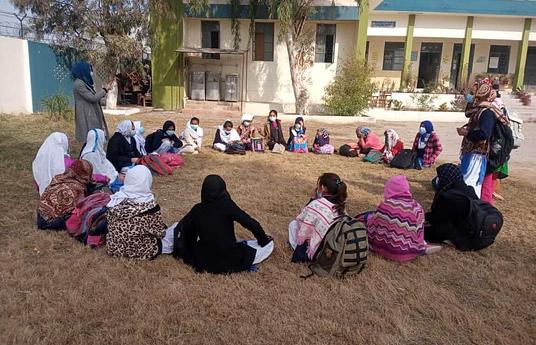In many school systems, for a number of different reasons, students can be unmotivated and unwilling to learn. For some, the traditional style of the school in which the teacher imparts knowledge to be recalled in tests is deeply alienating and can lead students to question the value of education.
Furthermore, for some areas, there may not even be a teacher. For example, it can be very difficult to get a fully trained teacher to work in rural, isolated areas of Mexico or in some Thai classrooms where one teacher is responsible for 50 students.
Over the past 20 years, Redes de Tutoría has sought to transform students and teachers by developing tutorial relationships and harnessing the power of one to one dialogue. The Redes de Tutoría approach moves away from the traditional classroom where a teacher delivers standard content for all students to work through at exactly the same pace.
Instead, tutees enjoy greater autonomy and choose what interests them most from a selection of inquiry-based projects called ‘Temas’. Supported by individualized guidance from the teacher, students build on their prior knowledge with self-directed study. Once their study is completed, students reflect on their learning before presenting their Tema to the class. The presentation not only builds confidence and self-esteem but also creates a shared learning culture within the classroom.
Peer learning and mentoring is an essential element of the Redes de Tutoría approach. Students are empowered to be both learners and teachers. Following the completion of a Tema, tutees become the tutors and are trained to support others who choose to study that topic. Through analogies, examples, and questions, teachers and tutors guide the tutees to find their own answers.
Within this pedagogy, the process is more important than the answer and students are often encouraged to try to find more than one solution to a given problem. Students feel valued and more willing to take chances and make mistakes within the supportive learning community.
Another important aspect of Redes de Tutoría is the way that families and the wider community are included within the tutorial networks. As a result of this, school and education have moved into and become part of the local community. One teacher can transform a group of students who, in turn, transform the community. The dynamic has changed and education is more social and available to all. Paradoxically, fringe public schools are becoming the harbingers of change.
The event that most ambitiously projected tutorial practices into the public school realm was a visit to a one-room rural middle school by the national Mexican Undersecretary of Education in 2008. Impressed by 21 students indistinctly teaching and learning under the direction of a single teacher, the Undersecretary saw it fit to promote the practice among willing teachers working in similar school situations. Interest in Redes de Tutoría grew rapidly following the release in 2013 of a moving documentary, which demonstrated the power of the Redes de Tutoría approach. Now schools across Mexico have adopted the technique and it has spread to be used in vulnerable communities in South America and Southeast Asia.



